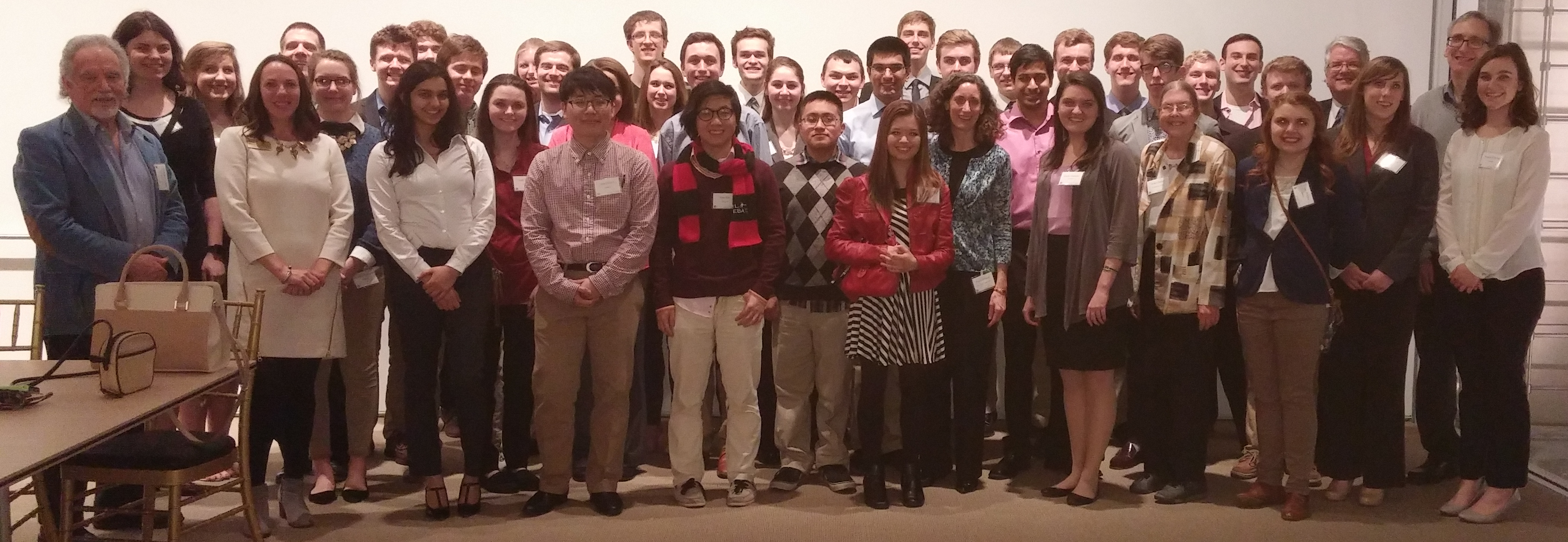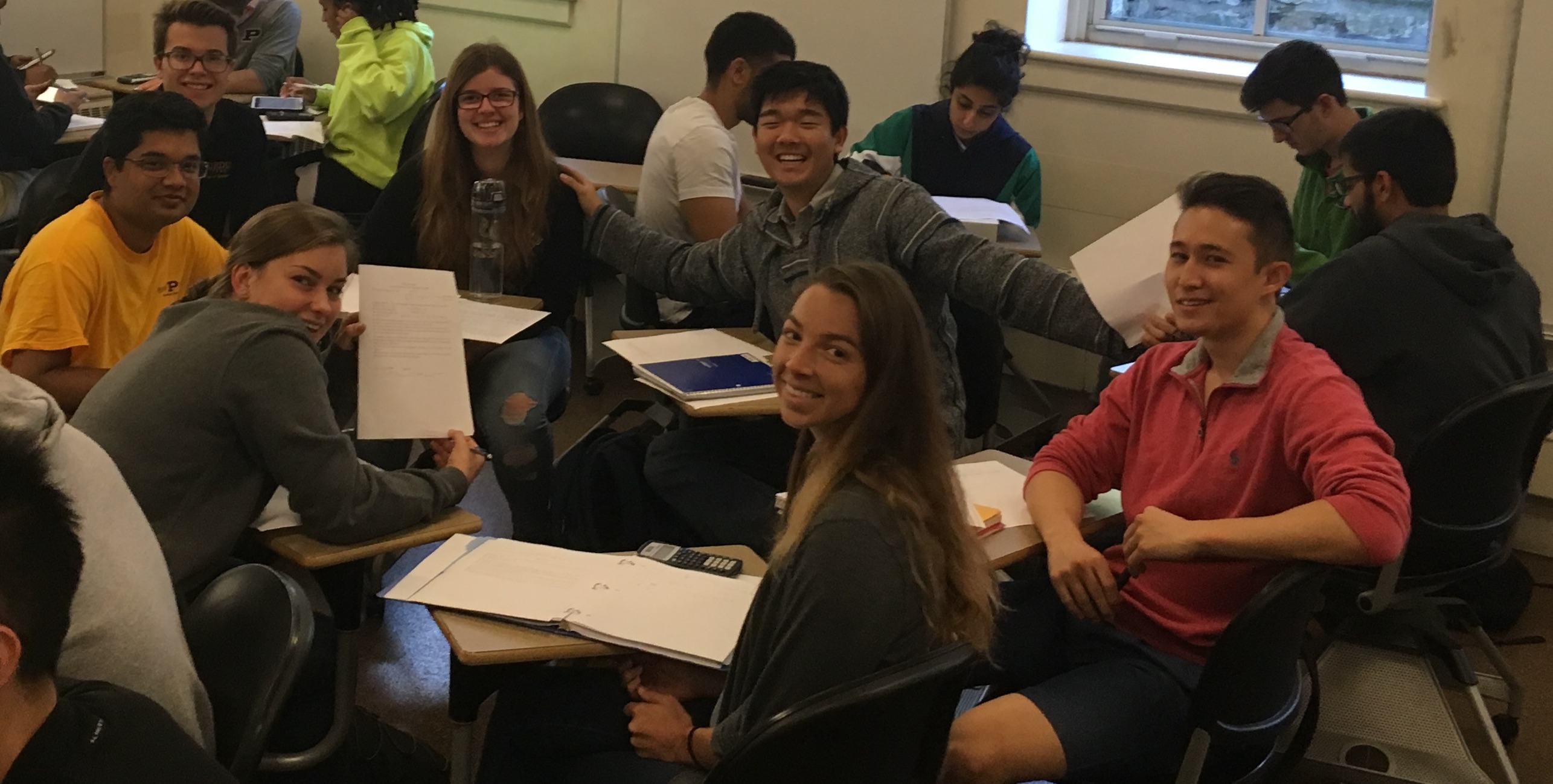
Agriculture

This community within The Data Mine allows students to gain learning outcomes directly related to their major program of study within the College of Agriculture. Students from every department in the College of Agriculture are welcome to apply. Potential research examples include the use of GIS technologies for soil science and using remote sensing for precision agriculture. As a result of such projects, students will be able to work in fast-growing fields such as precision agriculture using remote sensing with open-source data analysis tools. Other examples of disciplines in which students will benefit from Data Science expertise include spatial applications in agronomy, animal sciences, forestry, entomology; genomic applications in biochemistry and botany; etc.
New Incoming students should apply for fall 2023 using the Purdue Learning Communities main application link.
Current Purdue students are able to apply for The Data Mine Agriculture Learning Community for 2023-24 from October 1, 2022 until March 31, 2023.Eligibility
Any undergraduate student enrolled in the College of Agriculture (or Exploratory Studies) with an interest in Agriculture and the Data Sciences (first-year students and continuing students are both welcome).Residential Component
- New Incoming Students: Living in Data Mine residential space is required unless you are in the Honors College or have other special accommodations needed.
- Returning Purdue Students: Data Mine housing for returning undergraduates has reached capacity for AY 2023-24.
- Your roommate (in most cases) will be a member of The Data Mine.
- If you want to live on campus, it is necessary to complete a housing contract. (Completing a housing contract is a separate process from applying for a learning community.)
Duration
Fall and Spring semestersRequired classes for students who will be Sophomores, Juniors, Seniors who have taken STAT 30100 when participating in The Data Mine
The information below is subject to change.
FallSpring
- ENTM 24200 (3 credits; section SC1: CRN 20424) Data Science
- TDM 10100, 20100, 30100, 40100 (1 credit; 4 sections available) The Data Mine I, III, V, or VII
Biochemistry students take this course:
- TDM 10200, 20200, 30200, 40200 (1 credit; 4 sections available) The Data Mine II, IV, VI, or VIII
Other Agriculture courses to consider include:
- BCHM 49500 (3 credits) R for Molecular Biosciences
- AGR 33300 Data Science for Agriculture
- ABE 20500 Computations for Engineering Systems
- ABE 30100 Numerical and Computational Modeling in Biological Systems
- ABE 31400 Design of Electronic Systems
- AGEC 30500 Agricultural Prices
- AGEC 35200 Quantitative Techniques for Firm Decision Making
- AGRY 32000 Genetics
- AGRY 54500 Remote Sensing
- AGRY 56500 Soils and Landscapes
- ANSC 31100 Animal Breeding
- ASM 10400 Introduction to Agricultural Systems, paired with ASM 10500 Agricultural Systems Computations and Communication
- BCHM 49500 - 002 Computational Genomics
- ENTM 30100 Experimentation and Analysis
- FNR 21000 Natural Resource Information Management
- FNR 35500 Quantitative Methods for Resource Management
- FNR 35900 Spatial Ecology and GIS
- FS 44400 Statistical Process Control
- HORT 31900 Controlled Environment Production of Horticultural Crops
Required classes for students who will be new, incoming First-Year students when participating in The Data Mine
The information below is subject to change. Students should also consider applying to work with a Digital Agriculture Corporate Partner.
FallSpring
- TDM 10100 (1 credit; 4 sections available) The Data Mine I
- TDM 11100 (3 credits; CRNs vary) The Data Mine Corporate Partners
- TDM 10200 (1 credit; 4 sections available) The Data Mine II
- TDM 11200 (3 credits; CRNs vary) The Data Mine Corporate Partners
Events and Activities Included
- Weekly dinners with Data Mine participants
- Faculty and graduate student office hours onsite in Hillenbrand
- Seminars by visiting speakers, including practicing data scientists
- Social gatherings with Data Mine members
- Meals with campus and community leaders
- Game / recreation nights
- Career and graduate school panels
- Hackathons / data competitions
- Professional development activities
- Tour of Purdue's computational facilities